Vervain
An introduced plant, vervain is widely naturalised in the UK. It is a great source of nectar for all kinds of insects and can be seen on rough grassland, waste ground, coastal cliffs and roadside verges.
Want to learn more about wildlife near you? You're in the right place, search below and discover the nature you can help protect in Kent.
An introduced plant, vervain is widely naturalised in the UK. It is a great source of nectar for all kinds of insects and can be seen on rough grassland, waste ground, coastal cliffs and roadside verges.
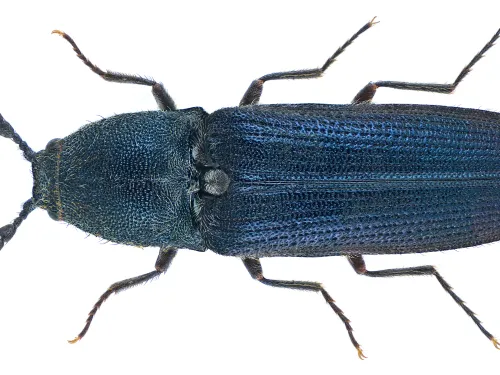
The violet click beetle is a very rare beetle that lives in decaying wood, particularly common beech and ash. It gets its name from its habit of springing upwards with an audible click if it falls on its back. It is found at just three sites in the UK.
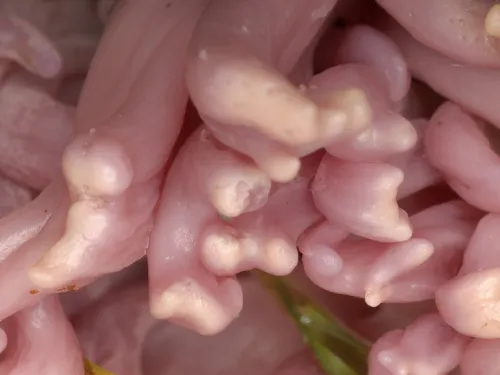
The branching, finger-like projections of this fungus give it the appearance of an underwater coral. Its striking colour and form make it easy to spot, but it is scarce in the UK.
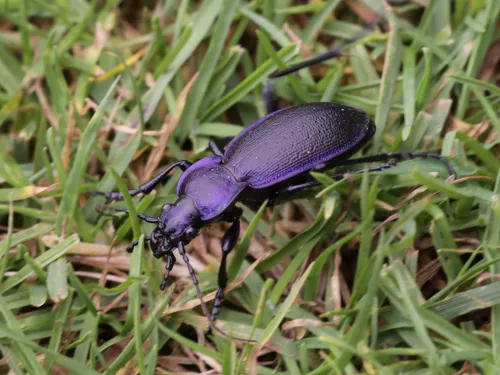
Violet ground beetles are active predators, coming out at night to hunt slugs and other invertebrates in gardens, woodlands and meadows.
Despite its dazzling colouration, this fabulous nudibranch can be easily missed, due to its small size!
The upright, blue flower spikes of Viper's-bugloss can be spotted on chalk grassland, sand dunes, cliffs and banks. Its spotted stem is thought to resemble a viper.
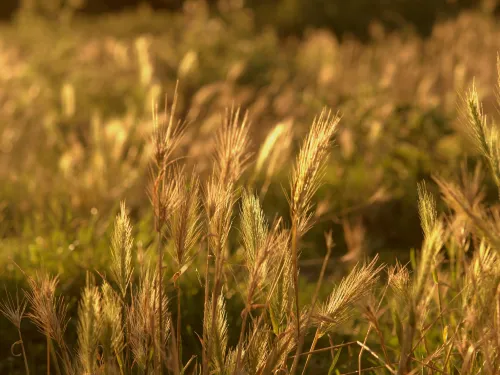
The distinctive spiky, or 'bearded', green flower heads of wall barley appear from June to July and are easy to spot in an urban environment as they push their way up through pavements and walls.
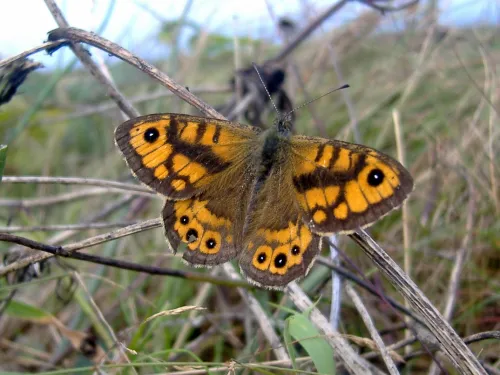
The wall brown or 'wall' gets its name from the fact it rests on any bare surface or wall! It can be found in open, sunny places like sand dunes, old quarries, grasslands and railway cuttings.
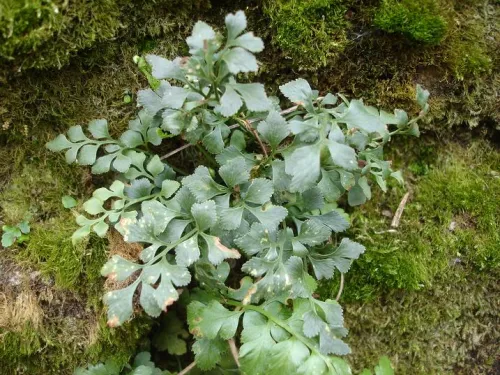
With club-shaped leaflets on its fronds, wall-rue is easy to spot as it grows out of crevices in walls. Plant it in your garden rockery to provide cover for insects.
This bumpy shell lives up to its name and lives partly buried in the seabed along the west coast of Great Britain.
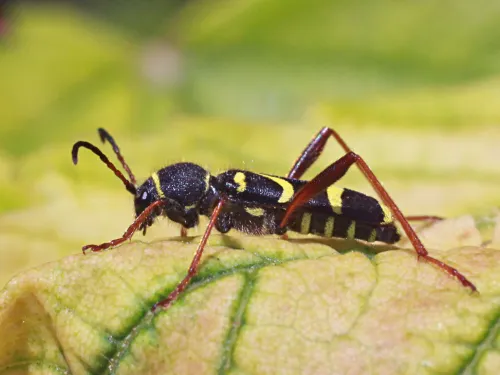
A clever mimic, the wasp beetle is black-and-yellow and moves in a jerky, flight-like fashion - fooling predators into thinking it is actually a more harmful common wasp. Look for it in hedgerows and woods in summer.
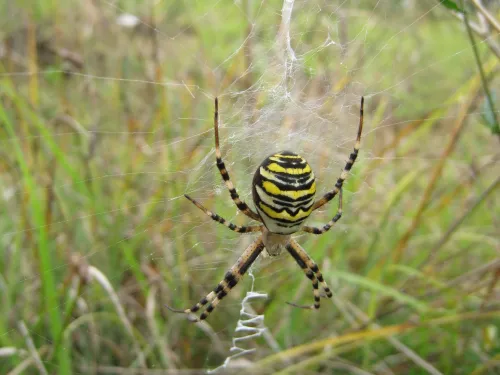
The wasp spider is a great mimic - looking just like a common wasp keeps it safe from predators, even though it is not dangerous itself. It can be found in southern England, but is spreading north.